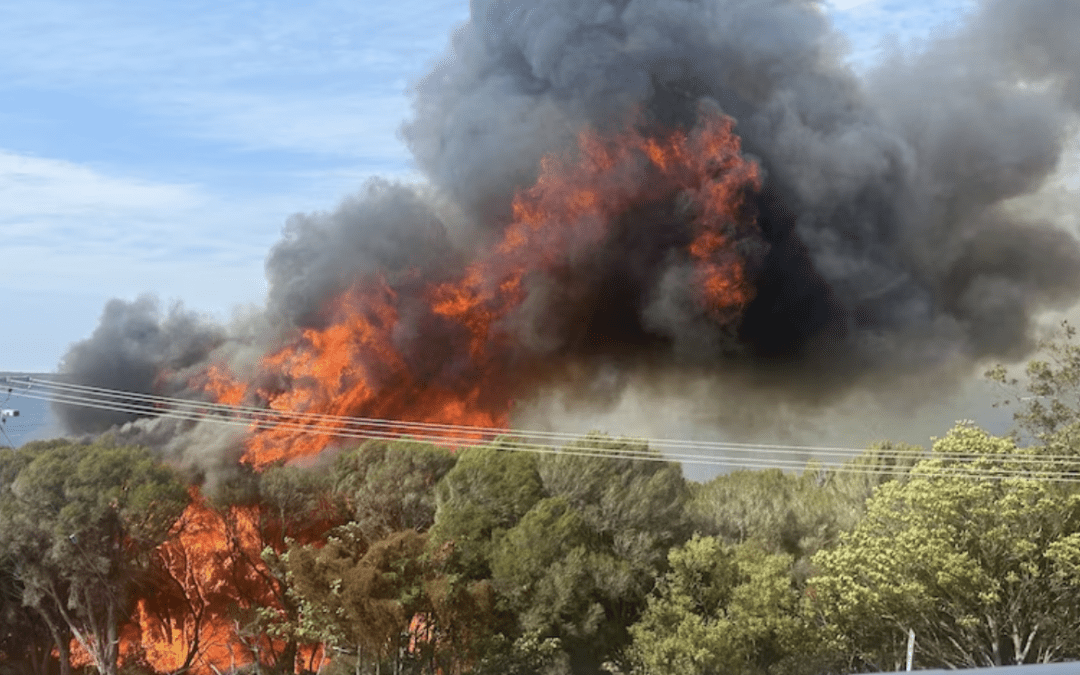More than 20 public schools have been shut down this week in response to unprecedented fire danger warnings along NSW’s south coast. The spring heatwave raises concerns over the severity of the upcoming ‘El Niño’ summer and the preparedness of Fire and Rescue NSW.
The closure of schools, including Batemans Bay Public School, Bega Valley Public School, and Bemboka Public School, comes as temperatures in parts of New South Wales, the ACT, and Victoria soared up to 14 degrees Celsius above average earlier in the week.
The New South Wales Rural Fire Service (RFS) declared a catastrophic fire danger rating for the far South Coast, driven by stronger-than-forecast winds. ‘Watch and Act’ alerts have been issued for two fires, one near Eden on the south coast and another south of Bombala in the Bondi Nature Reserve. While the fire near Eden was brought under control within 40 minutes, residents remain on high alert.
The Bureau of Meteorology (BOM) has declared two major climate drivers linked to hot, dry conditions are officially underway in Australia, prompting further warnings that extreme heat could hit this spring and summer. BOM has confirmed the El Niño weather pattern is active over the Pacific for the first time in eight years, alongside a “positive” Indian Ocean Dipole (IOD).
BOM’s head of climate monitoring, Karl Braganza, warned that these climate events, coupled with climate change, could lead to a summer of severe heat, increasing fire risks across the country.
“When [an El Niño and positive Indian Ocean Dipole] occur together, that tends to increase the severity of rainfall deficiencies,” Mr Braganza said.
“Those conditions are accompanied by an increase in fire danger and extremely hot days.”
Despite these challenging circumstances, concerns have arisen regarding the readiness of firefighters for the upcoming ‘super El Niño’ summer, which could replicate conditions seen during the devastating 2019 bushfire season. The Fire Brigade Employees Union (FBEU) has been vocal about the inadequate funding and resource shortages that have left the service underprepared.
FBEU representative Martin Dixon expressed the firefighters’ deep apprehension about facing the impending fire season without proper funding and equipment. He emphasised the need for essential resources to fulfil their vital role, and the unsustainability of relying heavily on volunteer organisations during prolonged bushfire seasons.
“We’ve been behind the eight ball for many years, and the 2019 bushfires highlighted the heavy reliance on volunteer organisations, which were never designed to handle prolonged bushfire seasons. We deserve the necessary equipment and support to carry out our job,” Mr Dixon said.
“It all boils down to funding, and the government has continued to overlook the necessity of frontline services. Under the previous state government, we were subjected to one of their programs called an efficiency dividend, which is a really nice way of saying, we’re going to cut your funding. They declassified Fire and Rescue NSW as a frontline service, and we still haven’t been reclassified.”
These developments have raised concerns over the potential severity of the upcoming summer and bushfire season, making it crucial to address the readiness of firefighting services promptly.

